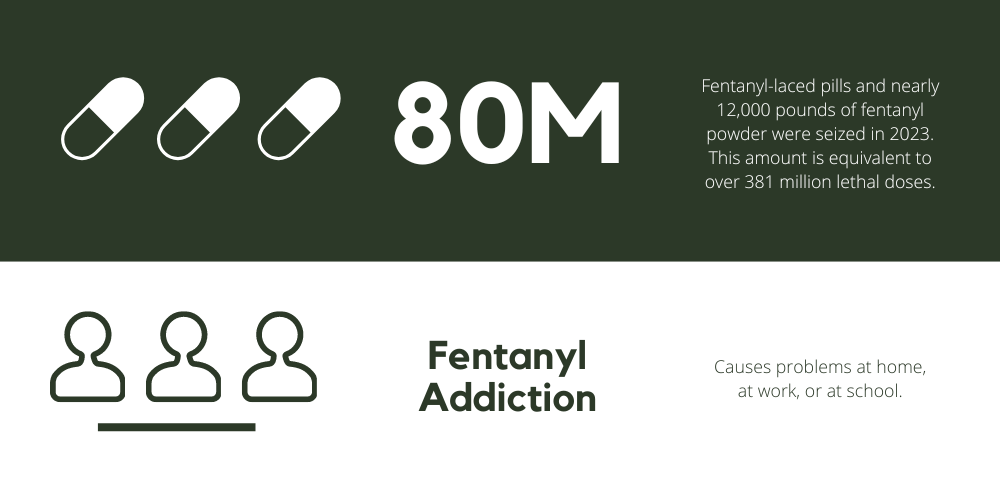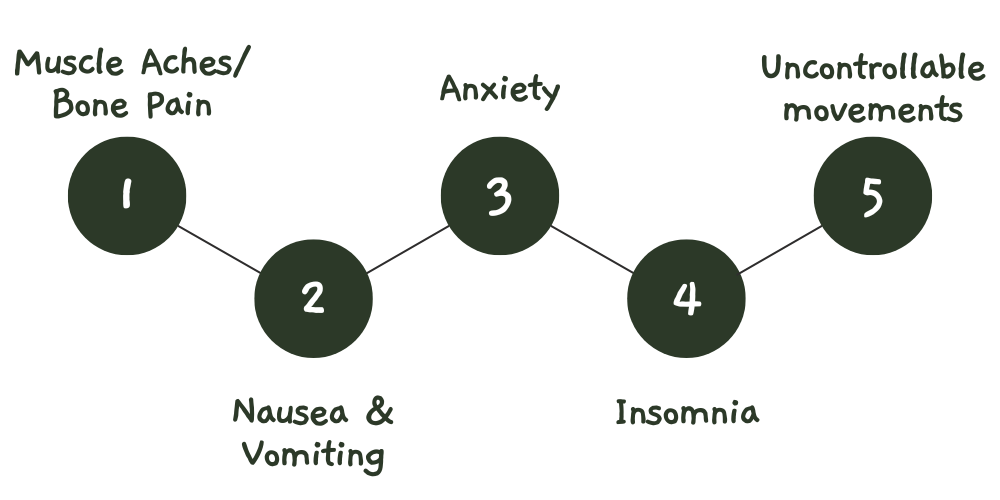
Medically Supervised Fentanyl Detox Orange County
Fentanyl has become one of the most dangerous opioids in the United States. In Orange County and across Southern California, fentanyl-related deaths have surged dramatically. The Orange County Health Care Agency reported that opioid overdose deaths increased by over 80% between 2018 and 2021, with fentanyl as the primary driver.
This potent synthetic opioid is 50 to 100 times stronger than morphine. Its potency increases the risk of overdose, euphoria-driven dependence, and long-term substance abuse. At Sullivan Recovery, we offer safe, effective fentanyl detox in Orange County through outpatient services supported by medical and therapeutic interventions.
Opioid use disorder (OUD) is a chronic disease marked by compulsive drug use despite harmful consequences. Fentanyl, oxycodone, methadone, and morphine are commonly misused opioids that can lead to serious health problems and even death. In Orange County alone, emergency department visits due to opioid overdose have more than tripled over the past five years.
Fentanyl is frequently mixed with methamphetamine, benzodiazepine, or heroin, making drug detoxification even more urgent. Patients exposed to such combinations often arrive in treatment with dual diagnosis challenges—requiring support for both mental health disorders like anxiety and substance dependence.

Outpatient fentanyl detox offers a flexible, safe, and medically supervised approach to treating addiction. At Sullivan Recovery, our outpatient detox program allows patients to continue daily responsibilities while receiving structured treatment. This method supports long-term sobriety and relapse prevention.
Our licensed physicians manage drug withdrawal symptoms, such as vomiting, diarrhea, changes in blood pressure, and heart rate fluctuations. We use FDA-approved medication like buprenorphine and methadone to stabilize brain function and reduce opioid cravings.
Effective fentanyl addiction treatment includes more than medication. It requires therapy to address emotional, behavioral, and psychological challenges. At Sullivan Recovery, we provide:
These therapies promote healing from within, helping each patient rebuild health, improve self-awareness, and develop sober routines.
Fentanyl detoxification can be physically intense. Withdrawal symptoms often appear within hours and can include:
Sullivan Recovery offers medical detox overseen by licensed physicians to ensure patient safety. Our clinical staff monitors symptoms, adjusts medications, and provides 24/7 support during acute phases of detox. Our outpatient care combines clinical attention with flexibility, helping patients maintain dignity while pursuing recovery.

Many individuals entering fentanyl rehab also struggle with co-occurring mental health issues such as depression, trauma, or anxiety. Known as dual diagnosis, this condition requires simultaneous treatment of both disorders. At Sullivan Recovery, our outpatient program integrates behavioral therapy with psychiatric care to address the full scope of each patient’s needs.
This approach reduces the risk of relapse and strengthens long-term sobriety outcomes. It also increases treatment accessibility, especially for individuals with a history of unmanaged mental health conditions or past trauma.
Understanding your health insurance options is key to accessing affordable treatment. Sullivan Recovery accepts most major PPO plans, Medicare, and Medi-Cal. Our team helps patients and families verify insurance benefits and out-of-pocket costs before beginning treatment.
If you’re seeking fentanyl detox in Orange County, don’t let financial concerns delay recovery. Our admissions team is trained to help you explore all available insurance options for detox, therapy, medication, and outpatient treatment.
Our outpatient fentanyl detox program includes the following key components:
A Partial Hospitalization Program (PHP) provides a higher level of outpatient care for individuals needing extended structure without residential commitment. PHP at Sullivan Recovery runs five days per week and includes full-day therapy, psychiatric care, and recovery planning.
Once stabilized, patients transition into standard outpatient care where they attend therapy 3–5 times per week. This treatment center model allows patients to stay engaged in their recovery without disrupting work, family life, or school.
Sullivan Recovery is located in Mission Viejo, serving all of Orange County and surrounding areas including Laguna Beach, Irvine, Anaheim, and Santa Ana. Our location offers an alternative to inpatient care at facilities like Laguna Treatment Center, while still delivering structured and personalized detox and rehab.
Whether you’re seeking luxury rehab, step-down support from inpatient care, or your first experience with detox, our Orange County rehab is here to support your recovery with evidence-based care.
If you’re a parent, spouse, or friend of someone struggling with fentanyl abuse, it’s natural to feel overwhelmed. Fentanyl addiction changes brain function, disrupts behavior, and damages relationships. Support systems are essential for recovery success.
Sullivan Recovery offers education and family support services. We help loved ones understand the disease of addiction, recognize the signs of relapse, and become active participants in the treatment journey.
These statistics show the urgent need for accessible fentanyl detoxification programs and quality care from treatment centers like Sullivan Recovery.
Recovery doesn’t end with detox. We help patients maintain sobriety through relapse prevention planning, aftercare services, and continued behavioral support. We emphasize daily structure, therapeutic relationships, and personalized attention.
Our Joint Commission-accredited facility is committed to compassion, safety, and long-term outcomes. We don’t just treat the drug—we treat the behavior behind it and restore the individual’s overall health.
If you or someone you love is struggling with fentanyl, oxycodone, methamphetamine, or any other opiate, now is the time to act. Detox is the first step to regaining control. Sullivan Recovery offers safe, outpatient fentanyl detox in Orange County, backed by evidence-based care and medical supervision.
With a focus on physical and mental health, clinical guidance, and therapeutic healing, our team is here to support every patient from detox to lasting recovery. Reach out today to learn more about our detox program, fentanyl rehab, and outpatient options.
Call Sullivan Recovery or complete our confidential form to get started. Your journey to recovery begins here—safe, supported, and sober.
Fentanyl can be detected in urine for up to 72 hours after last use, but this varies based on dosage, frequency, and metabolism. Medical detox can begin shortly after the last dose under physician supervision to prevent severe withdrawal. Starting detox early increases safety and improves comfort during drug withdrawal.
Yes, outpatient detox programs are structured to allow flexibility for work, school, or caregiving. Treatment schedules are typically set during morning or evening hours, with clinical staff helping adjust visits as needed. This makes detox more accessible for individuals with ongoing responsibilities.
Patients should bring valid ID, insurance information, a list of current medications, and any mental health or medical records available. It’s helpful to arrange transportation, create a quiet space at home for rest, and notify supportive family or friends in advance. Staff at the detox center will guide you through the intake process step-by-step.
Yes, co-use of benzodiazepines, alcohol, or methamphetamine increases detox risks and changes the treatment plan. Medical staff will assess all substances involved and adjust medications and monitoring accordingly. Dual substance detox often requires closer clinical oversight to avoid seizures, mood instability, or medical complications.
We are available around the clock to assist you, every day of the year.
© 2024 Sullivan Recovery. All rights reserved.